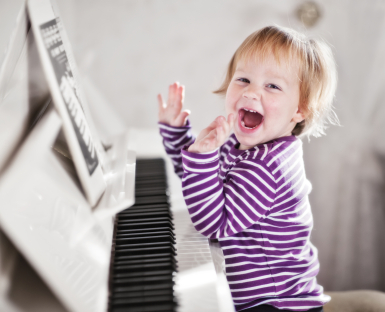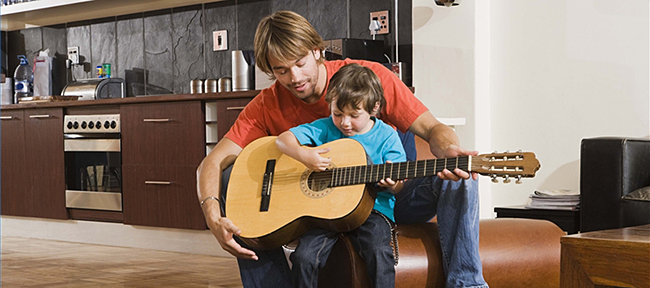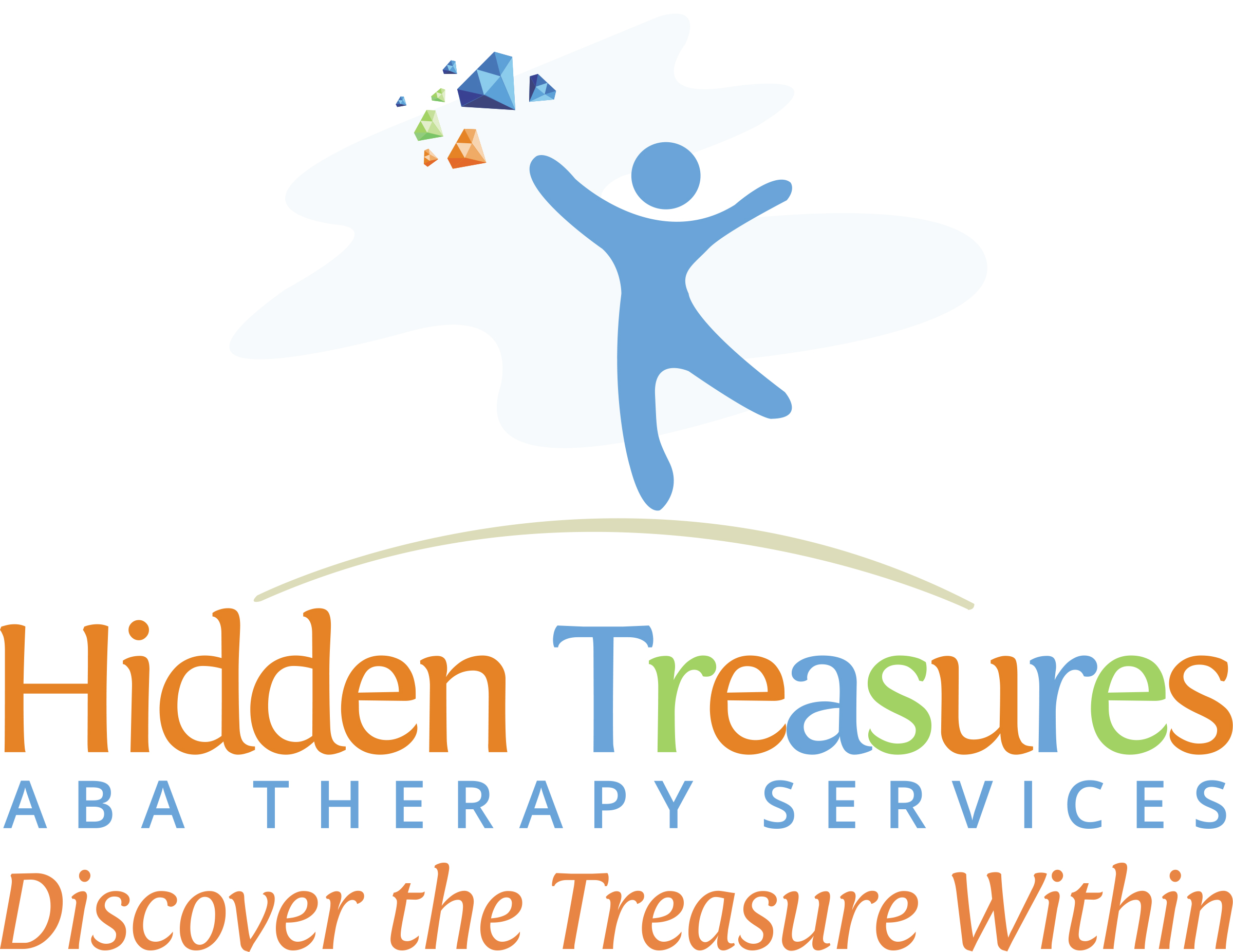
Whether you are a classical music lover or a rock-n-roll connoisseur, you’ve likely experienced the visceral and emotional effects of listening to and engaging with music. For children with autism, music can be a great tool for inspiring new emotional connections and engaging with the world around them. Research has shown that when children with autism interact with music on a fairly regular basis, they tend to show improvements in their behavior and communication.
Music Therapy
An increasingly popular therapy method, music therapy, has shown to improve motor skills and cognitive development in children with autism. Music therapy and autism research has shown a link between using musical processing as a therapeutic intervention and the effects on children with autism. It is clear that music may be a great tool to use with your child with autism.
If you are looking for other at-home activities that you can do with your child with ASD, be sure to read our article, “At-Home Activities for Kids with Autism.”
Sing Along
Many individuals with autism have difficulties with speech development. If your child is facing these challenges, music can actually serve as a tool to help promote an early speech by helping children access new neurological pathways to compensate for communication deficits. Try singing with your child, or teaching him/her new nursery rhymes. Encouraging singing can nurture development in your child’s that can lead to improved speech and communication skills.

Music At Its Core
It is important to reflect upon what music is at its core. Music is made up of structured melodic and rhythmic patterns, and as a listener or creator of music, your mind processes all the information that makes up the music that you are hearing or creating. When a child with ASD learns how to create music or interpret music, he/she is actually organizing that auditory information, which activates new pathways in the brain. Over time, those same pathways can be strengthened, leading to improved memorization skills, task sequences, and academics.
Social Interaction & Music
Aside from the impact that music has on cognitive development, children with ASD who interact with others when creating or listening to music are creating social connections through mutually shared interests. Singing a song together, learning an instrument with an instructor, or enjoying a song with a family member is a positive way to engage with others and improve social skills in the process.

Getting Creative with Music
Music is a creative medium that can offer a safe and fun way to express one’s self. Your child can benefit from the flexibility that this art form can offer. Depending on what therapy method you have chosen to help support your child with ASD, music may be incorporated into the mix by his/her therapist

At Hidden Treasures ABA Therapy Services, our team of specialists is here for you. Whether you are seeking information about advocating for your loved one, or you are looking for support and therapy services for your child with ASD, you can contact our team TODAY.
